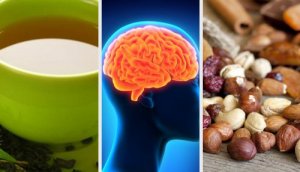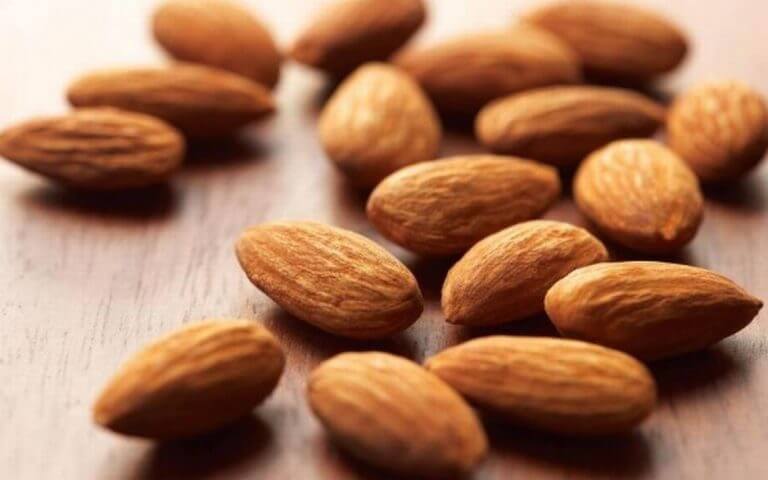What to Eat to Improve Your Memory and Tips to Stimulate Your Brain


Written and verified by the psychologist Bernardo Peña
Memory loss knows no age. That’s why we need to take action early to keep our brains healthy. Eating foods to enhance your memory and cognitive function is one thing you can do.
But what causes memory loss, anyway?
Memory loss is caused by an absence of vitamins, especially B complex, as well as amino acids.
What you eat is very important when it comes to memory loss and decreased cognitive function. You need to eat foods high in antioxidants, protein, and essential fats.
Brain function and how what you eat affects it
Your brain contains around a billion neurons in each cubic millimeter.
It’s constantly changing and making new connections. Your brain is nothing more than interconnected neurons that work with certain chemicals.
A poor diet will make you more vulnerable to mental disorders, as well as degenerative diseases of the nervous system.
Eating a balanced diet will enhance cerebral activity and improve your memory, improve your concentration, and also help with depression and anxiety.
What to eat to improve your memory
The glucose in the foods you eat acts as fuel for your brain, while the protein acts as building blocks and neurotransmitters.
On the other hand, the fatty acids (lipids) help build new membranes that protect the neurons.
Eating a varied diet is essential, as is eating 4 or 5 times a day, not skipping meals, and drinking more fluids.
But most of all, it’s helpful to add foods to your diet that contain:
1. Omega 3

They work as a protective layer on the membranes of your brain cells. They can be found in foods that enhance your memory, including:
- Trout
- Sardines
- Tuna
- Shellfish
- Nuts
- Soy
- Vegetable oils
Did you know? Scientists have Discovered that an Area Of the Brain Doesn’t Mature Until 36
2. Antioxidants
Antioxidants are found in plant-based foods.
They’re in charge of reducing the damage that cell oxidation causes and helping improve your concentration. While your body is able to make its own antioxidants, it’s still very good to include them in your diet.
Some foods that contain antioxidants are:
- Berries
- Brocolli
- Nuts
- Green tea
- Garlic
- Carrots
3. Vitamin E

Vitamin E belongs to the group of fat-soluble vitamins, which help counteract oxidative stress.
Some foods that enhance your memory and contain vitamin E are:
- Peanuts
- Tomatoes
- Asparagus
- Kiwi
- Pumpkin
4. Polyphenols
Polyphenols are defined as compounds that have an antioxidant effect. They’re found in plants.
Some foods that contain polyphenols are:
- Raspberries
- Cherries
- Green tea
- Grapes
5. Vitamin B

Better known as folic acid, Vitamin B helps lower your levels of homocysteine, which can cause heart problems. It also helps your body produce new cells, including neurons.
A vitamin B deficiency can lead to anxiety, nervous system disorders, and memory loss.
Some foods that enhance your memory and contain vitamin B are:
- Almonds
- Swiss chard
- Spinach
- Cabbage
- Hazelnuts
- Avocados
Foods that make memory loss worse
If you want to keep your memory from declining and fend off other illnesses, cut these foods out of your diet:
- Sugar, white flour, white rice. They can also alter your nervous system and cause hyperactivity.
- Saturated fat. Besides affecting your memory, it makes digestion slower.
- Processed foods. They gradually affect your ability to understand and plan, as well as your memory.
Tips to stimulate your brain
- Eat a balanced, nutritious diet.
- Eat your meals on a regular schedule.
- Get in touch with nature.
- Do physical activity for at least 30 minutes, 3 times a week.
- Watch your blood pressure and cholesterol.
- Learn how to cope with stress.
- Be careful not to gain weight, as this can lead to mental deterioration and dementia.
- Get out and do fun things and be social; clear your mind.
- Sleep at least 8 hours a night. This will help keep your nervous system in balance.
- Drink at least 8 glasses of water a day.
Take care of your brain and start now — eat better and make some changes in your lifestyle. It’s worth it.
All cited sources were thoroughly reviewed by our team to ensure their quality, reliability, currency, and validity. The bibliography of this article was considered reliable and of academic or scientific accuracy.
- Ishihara T, Yoshida M, Arita M. Omega-3 fatty acid-derived mediators that control inflammation and tissue homeostasis. Int Immunol. 2019 Aug 23;31(9):559-567. doi: 10.1093/intimm/dxz001. PMID: 30772915.
- Hatziagapiou K, Kakouri E, Lambrou GI, Bethanis K, Tarantilis PA. Antioxidant Properties of Crocus Sativus L. and Its Constituents and Relevance to Neurodegenerative Diseases; Focus on Alzheimer’s and Parkinson’s Disease. Curr Neuropharmacol. 2019;17(4):377-402. doi: 10.2174/1570159X16666180321095705. PMID: 29564976; PMCID: PMC6482475.
- Gugliandolo A, Bramanti P, Mazzon E. Role of Vitamin E in the Treatment of Alzheimer’s Disease: Evidence from Animal Models. Int J Mol Sci. 2017 Nov 23;18(12):2504. doi: 10.3390/ijms18122504. PMID: 29168797; PMCID: PMC5751107.
This text is provided for informational purposes only and does not replace consultation with a professional. If in doubt, consult your specialist.








